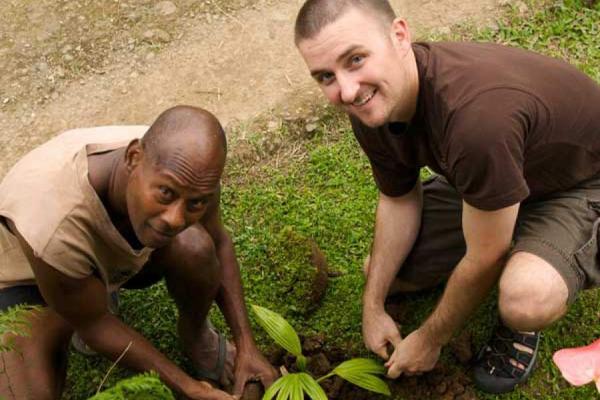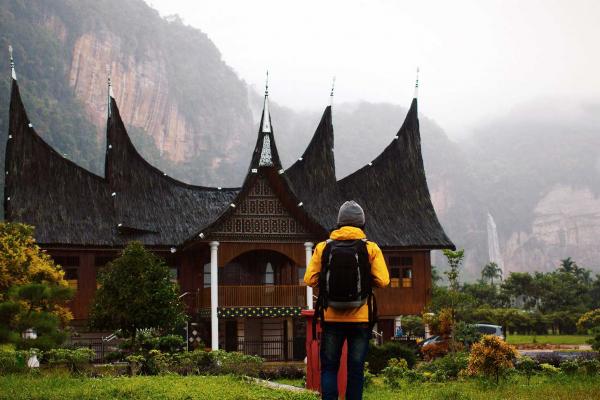Seizure of nearly all white-owned commercial agricultural land, aimed at benefiting black farmers, has put millions of Zimbabweans at the risk of famine. More than half the adult population is unemployed and millions of people are facing food shortages—largely the result of an ill-conceived and corrupt system of land re-distribution, compounded by drought. The country's inflation rate is around 300% and it has one of the highest HIV/AIDS rates in the world. A clampdown on the press, and the use of intimidation and torture to ensure support and stifle opposition have earned Mugabe the condemnation of other countries.
In part, Zimbabwe's problems can be traced back to the late 1800s when Cecil Rhodes and his British South Africa Company (BSA) arrive on the scene. Rhodes, lured north from South Africa by the promise of new mineral riches to exploit, is given a mandate by Britain to colonize the region. He and a group of white settlers raise the British flag over Fort Salisbury (now Harare, the country's capital) and proceed to turf the native Shona people from their fertile land. A white-minority government is established and the region is named Rhodesia.
Sixty years pass with the country's black majority struggling under an increasingly repressive white government. Resistance to white rule mounts and finally comes to a head in 1965. When Britain begins to press for reform and majority rule, the hard-line Rhodesian prime minister, Ian Smith, unilaterally declares independence from Britain—under continued white-minority rule.
An all-out guerrilla war against his government ensues, waged by the Zimbabwe African People's Union (Zapu) and the Zimbabwe African National Union (Zanu). The white population begins leaving the country in droves.
Repeated attempts to negotiate an end to the vicious civil war fail until 1979 when British-brokered talks finally yield a peace agreement and a new constitution. The following year, British supervised independence elections are held and veteran pro-independence leader Robert Mugabe of the Zanu party is named prime minister. Rhodesia is renamed Zimbabwe.
Mugabe's new government declares education and health care to be basic human rights. Hundreds of schools and medical clinics are built. By 1988, secondary school enrollment has increased 800%, infant mortality is decreasing and the country is experiencing a certain amount of stability. However, by 1991, Zimbabwe is deeply in debt.
The government turns to the International Monetary Fund (IMF) for a $500 million loan. Like many poor countries seeking IMF assistance, Zimbabwe is compelled to commit to an Economic Structural Adjustment Programme (ESAP). Under its terms, Zimbabwe must focus on growing cash crops like tobacco and cotton for export instead of food for itself. It must devalue its currency to make these things cheaper for the foreign market, and slash spending on social programmes like health care and education. All resources are now directed toward paying off Zimbabwe's mountainous debt.
Corruption in the Mugabe government is also a problem. Land that is supposed to be redistributed to the black population is handed over to Mugabe's supporters and Zimbabwe's business elite. Millions of acres of productive land lie idle or are poorly used. In 1997, demonstrating veterans of the liberation war—Mugabe's old comrades—demand land and money. He pays them billions of dollars to keep them quiet, a move that some economists say caused the dollar to collapse and the economy to crash. Although there is no law enabling the government to force white farmers off their land, he encourages the veterans and the youth militia to do just that.
By 2000, Zimbabwe is deep in economic crisis. Their involvement is the war in DR Congo is costing an estimated $1 million per day. The IMF and the World Bank cut aid because of increasingly widespread and violent seizures of white-owned farms. The country is facing food shortages after a severe drought followed by two cyclones during harvest season. Crops are either left rotting in the fields or cannot be gathered because the invading veterans will not allow access to the land.
Dissatisfaction with the country's deterioration leads to the erosion of Mugabe's popularity with the masses, and widespread support for the opposition party, Movement for Democratic Change, led by Morgan Tsvangirai.
In response, Mugabe passes laws in 2002 limiting press freedom. He is re-elected president that same year in elections condemned by the opposition and outside observers as being seriously flawed, marred by intimidation and violence. Months later, a bill is passed allowing the government to confiscate land from white farmers. Mugabe is accused of using intimidation and torture to stifle political opposition and strikes and protests are met with brutal force.
In 2002, just ahead of the election, opposition leader Tsvangirai is charged with treason relating to an alleged plot to kill Mugabe. He is acquitted, but then faces a second treason charge for calling for street demonstrations to oust Mugabe. He is currently working to garner support to force Zimbabwe to follow Southern African Development Community guidelines for next year's elections.
Add this article to your reading list



